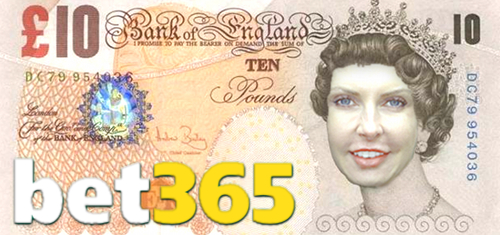 Online gambling operator Bet365 continues to outclass its UK competition, posting a 27% rise in operating profit in its 2015 fiscal year.
Online gambling operator Bet365 continues to outclass its UK competition, posting a 27% rise in operating profit in its 2015 fiscal year.
The Stoke-based Bet365 reported revenue rising 15% to £1.47b in the 12 months ending March 31, while operating profit rose to £410.2m. Bet365’s owners received a £75m dividend in FY15, down from £95m in FY14. Bet365 is half-owned by CEO Denise Coates (pictured), while brother John holds a one-quarter share.
Unlike its publicly traded Gibraltar-based rivals, Bet365 was already paying tax on its UK online revenue, so the Dec. 1 introduction of the UK’s new 15% online point-of-consumption tax had less of an impact than other UK firms have reported. Regardless, the pace of revenue and profit growth was slower than the company posted in FY14.
The FY15 numbers were boosted by the 2014 FIFA World Cup, leading to a one-third rise in sports betting handle to £34b. In-play wagers accounted for 75% of total sports turnover, while mobile wagering handle rose 59%. Active sportsbook customers grew by 41% to 4.1m, including 2.3m new depositors during the period.
Bet365 declined to break out its online casino figures but said its Playtech-powered poker vertical saw revenue rise 3% thanks to “a focus on recreational players.” Nearly half (47%) of new poker players were acquired via the mobile channel. The launch of a new bingo product helped push the vertical’s revenue up 44% year-on-year.
Bet365’s staff ranks grew 9% to just over 2,900 in FY15. In addition to being Stoke’s largest employer, Bet365 also controls the Stoke City football club, which posted an £800k profit in FY15, a dramatic improvement from the £5m loss the club recorded in FY14.
While the dominant story of late in the UK online market has been consolidation, a source close to Bet365 told the Financial Times that the company was unlikely to be looking to join the acquisition frenzy. The source said the proposed merger of Betfair and Paddy Power would be a formidable competitor but Bet365 would likely “just kind of get on with our own thing,” which evidently involves making scads of money.
